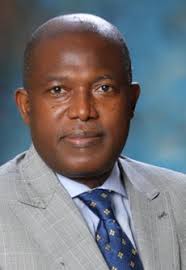In pursuit of its mandate of providing funding and other capacity building supports to the nation’s industrial entities, the Bank of Industry (BoI), increased its lending to Micro, Small and Medium Enterprises (MSMEs) N29.5 billion last year, up from the N8.2 billion in 2016.
This is even as the bank’s disbursement profile also rose significantly from N65.9 billion in the preceding year to N112.5 billion during the year under review.
Giving these hints at the bank’s 58th Annual General Meeting (AGM) held Thursday in Abuja, the Chairman of the Governing Board, Mr Aliyu Dikko, said that bank was able to record the impressive performance due to the Board and management’s fiscal discipline and strict observance of good governance principles in all aspects of its operations.
The Chairman said: “In spite of the challenging operating environment, I am pleased to announce that the group’s total assets improved by 4.5 per cent from N682 billion to N713 billion between 2016 and 2017.
“The total equity rose from N219 billion in 2016 to N241 billion in 2017, while Profit before Tax increased from N16.9 billion to N26.3 billion in the same period, a growth of 55.6 per cent. The bank’s disbursement profile in the year improved from N65.9 billion to N112.5 billion.
“Lending to Micro, Small and Medium Enterprises (MSMEs) also increased significantly to N29.5 billion, when compared to N8.2 billion in 2016”, Dikko added.
Commenting generally on the business environment in African continent during the year, he recalled that the economic growth in Sub-Saharan Africa rebounded in 2017 to 2.4 per cent after experiencing a two-decade low of 1.3 per cent in 2016, with three countries namely, Angola, Nigeria and South Africa accounting largely for the recovery.
Dikko linked improvements in commodity prices, favourable global financing conditions and tempering inflation to the recorded growth.
Noting that weak investment, declining productivity growth and negative per capita income growth remain key challenges faced by businesses in the continent in the year under review, the chairman pointed out that “in spite of the above, Nigeria achieved economic growth of 0.83 per cent in 2017
Dikko said: “This growth was attributed principally to the performance of the agricultural sector, ramp up in the Nigerian Oil and Gas sector and several economic reforms instituted by the Federal Government.”
He projected that the current fiscal year would be better than the past years in view of the efforts of the Federal Government and others to make the business environment more investor-friendly.
He assured that BoI would continue to support MSMEs because they represent “the engine of growth for any economy.’’
In his remarks, the bank’s Managing Director, Mr Olukayode Pitan, restated the bank’s commitment to sustain support for MSMEs as a strategic step towards improving their contributions to the nation’s GDP and job creation.






